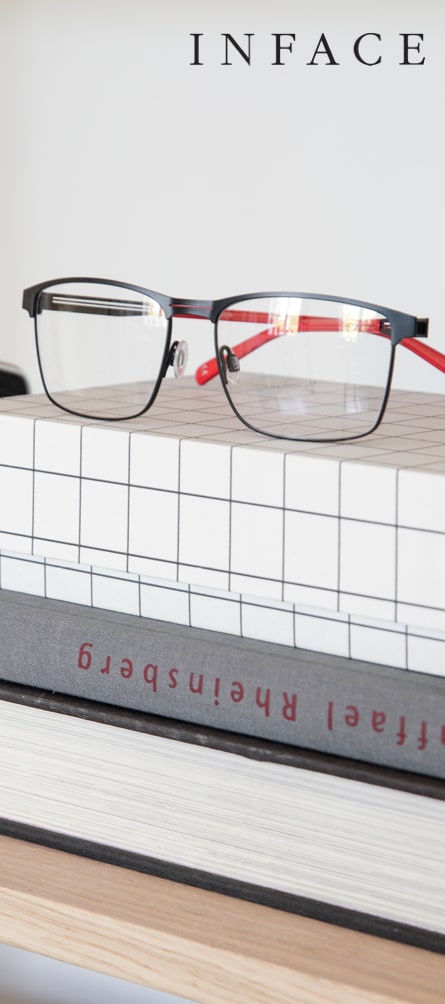Myopia Matters
Myopia is a condition on the rise around the world. More than 30% of Canadians currently have myopia, also known as nearsightedness.
Why is this a problem? It’s just a refractive error, right? Myopia is actually a major health concern. While it is a refractive error, causing objects in the distance to appear blurry while close-up items remain in focus, it is also a progressive condition.
Over time, myopia gets worse. It is caused by the elongation of the eyeball or the excessive curvature of the cornea. If the eyeball continues to grow, myopia will continue to worsen.
High myopia can lead to severe eye conditions, like retinal detachment, cataracts, and open-angle glaucoma.
There is no cure for myopia, but with our treatment methods, we can slow its progression in children and try to stop the development of high myopia. Eye exams are imperative for identifying the condition early.
All of our doctors have taken extensive training and certification in Myopia control techniques and technologies.

HALT Myopia Progression
Advance Eye Care is one of 15 practices, and the only one in Saskatchewan or Manitoba, selected as a pilot site for a new myopia control lens. Essilor Stellest lenses will have the highest effectiveness of any spectacle lens on the market for controlling myopia in children, slowing down progression by 67% on average.
The lens uses Highly Aspherical Lenslet Target (H.A.L.T.) technology to signal the eye to slow growth, acting as a shield against the cause of myopia, eye elongation. The technology involves 1,021 invisible lenslets, to both correct vision and slow the progression of nearsightedness.
To learn more about this exciting pilot project, contact us today.
Our Myopia Control Methods
Myopia usually begins in childhood, progressing into adulthood. We offer a variety of myopia control methods and can tailor treatment to your child’s unique circumstances. The method we ultimately recommend depends on your child’s age, their tolerance for contact lenses, and their maturity level.
Myopia control can be achieved through unique spectacle lens designs, specialized contact lens technology, or through the use of low-dose atropine. The method we ultimately recommend depends on your child’s age, their tolerance for contact lenses, and their maturity level.AECC was the first clinic in Regina to offer myopia control, beginning in 2010, and we continue to be the leader in myopia control in Regina. All of our doctors have taken in-depth certification programs in myopia control. We lead the way in technological advancement to maximize outcomes in myopia control.
Multifocal Contact Lenses
Multifocal contact lenses contain two prescriptions: one to help the wearer see close up and one to help them see far away. In other words, multifocal contact lenses correct myopia, but also allow for comfortable, more relaxed vision. The two prescriptions in the lens help prevent eye strain, which slows the progression of myopia while correcting it.
MiSight Contact Lenses
MiSight Contact Lenses are a multifocal, 1-day disposable contact lens designed specifically to slow the progression of myopia in children. These contact lenses are soft and replaced daily, making them comfortable and convenient for use by children. They have been shown to substantially reduce the worsening of myopia.
Spectacle Lenses
Low Dose Atropine
Atropine eye drops are typically used to dilate your eyes during a comprehensive eye exam but have also shown promising results in slowing the progression of myopia. Low-dose atropine eye drops administered at bedtime can help relax the eye’s focusing mechanisms to slow down the elongation of the eye and prevent severe nearsightedness.
Early Identification Prevents High Myopia
Roughly 75% of children with myopia received a diagnosis before the age of 12. To ensure the health of your child’s eyes and to keep them from developing high myopia, book their eye exam today.
OUR LOCATION
AECC Regina
- 3617B Pasqua Street
- Regina, SK S4S 6W8
Hours of Operation
- Monday: 8:00 AM – 5:00 PM
- Tuesday: 8:00 AM – 5:00 PM
- Wednesday: 8:00 AM – 5:00 PM
- Thursday: 8:00 AM – 8:00 PM
- Friday: 8:00 AM – 5:00 PM
- Saturday: 8:00 AM – 1:00 PM
- Sunday: Closed
*in July and August we are closed on Saturdays and open 8:00 AM – 5:00 PM on Thursdays
Our Brands



see Our Google Reviews
Our Blog
Vitamins for Dry Eyes: What Supplements Can Help?
Dry Eye, Eye HealthIrritating dry eyes can disrupt your day, but you can help manage your symptoms with proper nutrition. It can be challenging to get your total daily intake of vitamins in your diet. But supplements like vitamins A, D, and C and omega-3 can help support healthy, hydrated eyes. […]
Why Do I Keep Waking Up With Dry Eyes?
Dry Eye, Eye Conditions & TreatmentsYour dry eye may be caused by several factors, including your environment or allergies to underlying health conditions or medications. […]
What Are Some of the First Signs of Glaucoma?
Eye Conditions & Treatments, Eye Diseases, GlaucomaGlaucoma often has no noticeable symptoms during its early stages, but the first signs of glaucoma as it progresses can include peripheral vision loss, blurry vision, and eye pain. […]
Vitamins for Dry Eyes: What Supplements Can Help?

Irritating dry eyes can disrupt your day, but you can help manage your symptoms with proper nutrition. It can be challenging to get your total daily intake of vitamins in your diet. But supplements like vitamins A, D, and C and omega-3 can help support healthy, hydrated eyes. […]
Why Do I Keep Waking Up With Dry Eyes?

Your dry eye may be caused by several factors, including your environment or allergies to underlying health conditions or medications. […]
What Are Some of the First Signs of Glaucoma?

Glaucoma often has no noticeable symptoms during its early stages, but the first signs of glaucoma as it progresses can include peripheral vision loss, blurry vision, and eye pain. […]


